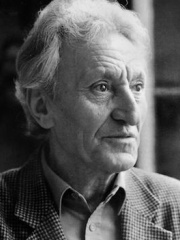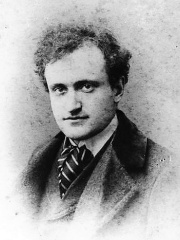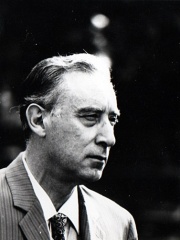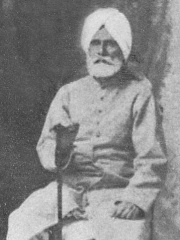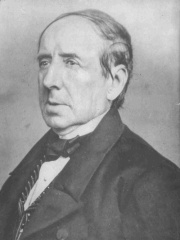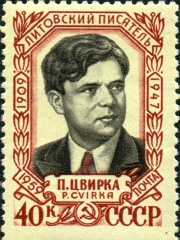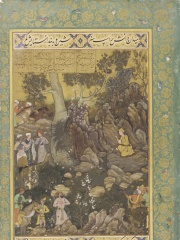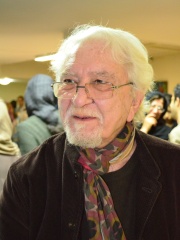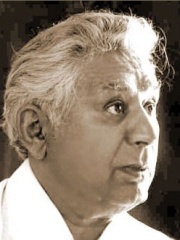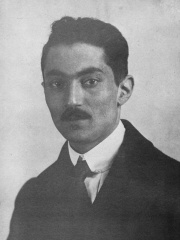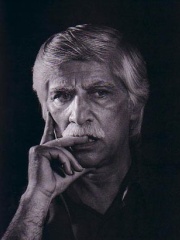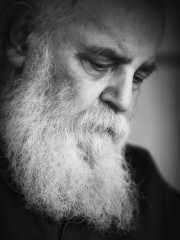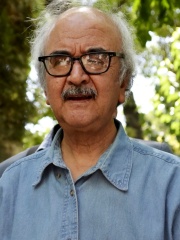WRITER
Shahrnush Parsipur
1946 - Today

 Shahrnush Parsipur
Shahrnush Parsipur
Shahrnush Parsipur (Persian: شهرنوش پارسیپور; born 17 February 1946) is an Iranian-born writer and translator. Read more on Wikipedia
Her biography is available in 19 different languages on Wikipedia (up from 17 in 2024). Shahrnush Parsipur is the 5,483rd most popular writer (up from 5,766th in 2024), the 410th most popular biography from Iran (up from 417th in 2019) and the 55th most popular Iranian Writer.
Memorability Metrics
Page views of Shahrnush Parsipur by language
Among WRITERS
Among writers, Shahrnush Parsipur ranks 5,483 out of 7,302. Before her are Jørn Lier Horst, Maeve Binchy, Carl Amery, Yordan Radichkov, Teresa de la Parra, and Federigo Tozzi. After her are Mario Luzi, Simon Beckett, Altaf Hussain Hali, Agustín Durán, Petras Cvirka, and Judith Krantz.
Most Popular Writers in Wikipedia
Go to all RankingsJørn Lier Horst
1970 - Present
HPI: 54.40
Rank: 5,477
Maeve Binchy
1939 - 2012
HPI: 54.40
Rank: 5,478
Carl Amery
1922 - 2005
HPI: 54.40
Rank: 5,479
Yordan Radichkov
1929 - 2004
HPI: 54.39
Rank: 5,480
Teresa de la Parra
1889 - 1936
HPI: 54.39
Rank: 5,481
Federigo Tozzi
1883 - 1920
HPI: 54.39
Rank: 5,482
Shahrnush Parsipur
1946 - Present
HPI: 54.39
Rank: 5,483
Mario Luzi
1914 - 2005
HPI: 54.39
Rank: 5,484
Simon Beckett
1960 - Present
HPI: 54.38
Rank: 5,485
Altaf Hussain Hali
1837 - 1914
HPI: 54.38
Rank: 5,486
Agustín Durán
1789 - 1862
HPI: 54.38
Rank: 5,487
Petras Cvirka
1909 - 1947
HPI: 54.38
Rank: 5,488
Judith Krantz
1928 - 2019
HPI: 54.37
Rank: 5,489
Contemporaries
Among people born in 1946, Shahrnush Parsipur ranks 602. Before her are Lyudmila Pakhomova, Paavo Väyrynen, Supachai Panitchpakdi, Isamu Sonoda, Abdul Qadir Bajamal, and Graham Gouldman. After her are Héctor Veira, Michael Mullen, Renzo Eusebi, Pearlette Louisy, Jo Jo White, and Oganes Zanazanyan.
Others Born in 1946
Go to all RankingsLyudmila Pakhomova
POLITICIAN
1946 - 1986
HPI: 54.48
Rank: 596
Paavo Väyrynen
POLITICIAN
1946 - Present
HPI: 54.46
Rank: 597
Supachai Panitchpakdi
POLITICIAN
1946 - Present
HPI: 54.45
Rank: 598
Isamu Sonoda
POLITICIAN
1946 - Present
HPI: 54.45
Rank: 599
Abdul Qadir Bajamal
POLITICIAN
1946 - 2020
HPI: 54.42
Rank: 600
Graham Gouldman
MUSICIAN
1946 - Present
HPI: 54.40
Rank: 601
Shahrnush Parsipur
WRITER
1946 - Present
HPI: 54.39
Rank: 602
Héctor Veira
SOCCER PLAYER
1946 - Present
HPI: 54.39
Rank: 603
Michael Mullen
MILITARY PERSONNEL
1946 - Present
HPI: 54.38
Rank: 604
Renzo Eusebi
ARTIST
1946 - Present
HPI: 54.37
Rank: 605
Pearlette Louisy
POLITICIAN
1946 - Present
HPI: 54.36
Rank: 606
Jo Jo White
BASKETBALL PLAYER
1946 - 2018
HPI: 54.34
Rank: 607
Oganes Zanazanyan
SOCCER PLAYER
1946 - 2015
HPI: 54.33
Rank: 608
In Iran
Among people born in Iran, Shahrnush Parsipur ranks 410 out of 631. Before her are Abol-Fath Khan Zand (1755), Mahmoud Dowlatabadi (1940), Ali Abbasi (1981), Amir Hatami (null), Mohammad-Reza Gharaei Ashtiani (1960), and Ali Parvin (1946). After her are Yasmine Pahlavi (1968), Aziz Nasirzadeh (1964), Abd al-Samad (1500), Dariush Shayegan (1935), Mina Ahadi (1956), and Ali Hatami (1944).
Others born in Iran
Go to all RankingsAbol-Fath Khan Zand
POLITICIAN
1755 - 1779
HPI: 55.01
Rank: 404
Mahmoud Dowlatabadi
WRITER
1940 - Present
HPI: 54.95
Rank: 405
Ali Abbasi
FILM DIRECTOR
1981 - Present
HPI: 54.75
Rank: 406
Amir Hatami
MILITARY PERSONNEL
HPI: 54.67
Rank: 407
Mohammad-Reza Gharaei Ashtiani
MILITARY PERSONNEL
1960 - Present
HPI: 54.66
Rank: 408
Ali Parvin
SOCCER PLAYER
1946 - Present
HPI: 54.60
Rank: 409
Shahrnush Parsipur
WRITER
1946 - Present
HPI: 54.39
Rank: 410
Yasmine Pahlavi
COMPANION
1968 - Present
HPI: 54.35
Rank: 411
Aziz Nasirzadeh
MILITARY PERSONNEL
1964 - Present
HPI: 54.32
Rank: 412
Abd al-Samad
PAINTER
1500 - 1593
HPI: 54.26
Rank: 413
Dariush Shayegan
PHILOSOPHER
1935 - 2018
HPI: 54.20
Rank: 414
Mina Ahadi
SOCIAL ACTIVIST
1956 - Present
HPI: 54.18
Rank: 415
Ali Hatami
FILM DIRECTOR
1944 - 1996
HPI: 53.97
Rank: 416
Among WRITERS In Iran
Among writers born in Iran, Shahrnush Parsipur ranks 55. Before her are Cassandra Clare (1973), Bozorg Alavi (1904), Mohammad-Ali Jamalzadeh (1892), Bahram Beyzai (1938), Hushang Ebtehaj (1928), and Mahmoud Dowlatabadi (1940). After her are Mohammad-Reza Shafiei Kadkani (1939), Ahmad NikTalab (1934), Masih Alinejad (1976), Marina Nemat (1965), Man Haron Monis (1964), and Roya Hakakian (1966).
Cassandra Clare
1973 - Present
HPI: 57.39
Rank: 49
Bozorg Alavi
1904 - 1997
HPI: 57.28
Rank: 50
Mohammad-Ali Jamalzadeh
1892 - 1997
HPI: 57.17
Rank: 51
Bahram Beyzai
1938 - 2025
HPI: 56.77
Rank: 52
Hushang Ebtehaj
1928 - 2022
HPI: 56.28
Rank: 53
Mahmoud Dowlatabadi
1940 - Present
HPI: 54.95
Rank: 54
Shahrnush Parsipur
1946 - Present
HPI: 54.39
Rank: 55
Mohammad-Reza Shafiei Kadkani
1939 - Present
HPI: 53.47
Rank: 56
Ahmad NikTalab
1934 - 2020
HPI: 51.77
Rank: 57
Masih Alinejad
1976 - Present
HPI: 51.42
Rank: 58
Marina Nemat
1965 - Present
HPI: 49.90
Rank: 59
Man Haron Monis
1964 - 2014
HPI: 48.82
Rank: 60
Roya Hakakian
1966 - Present
HPI: 46.60
Rank: 61



